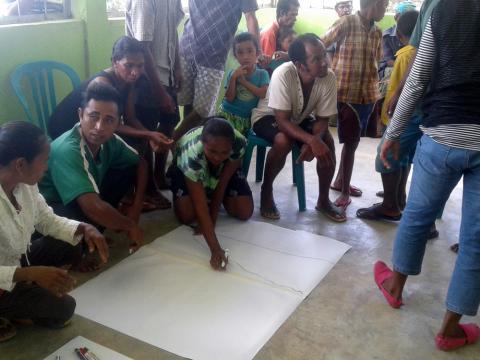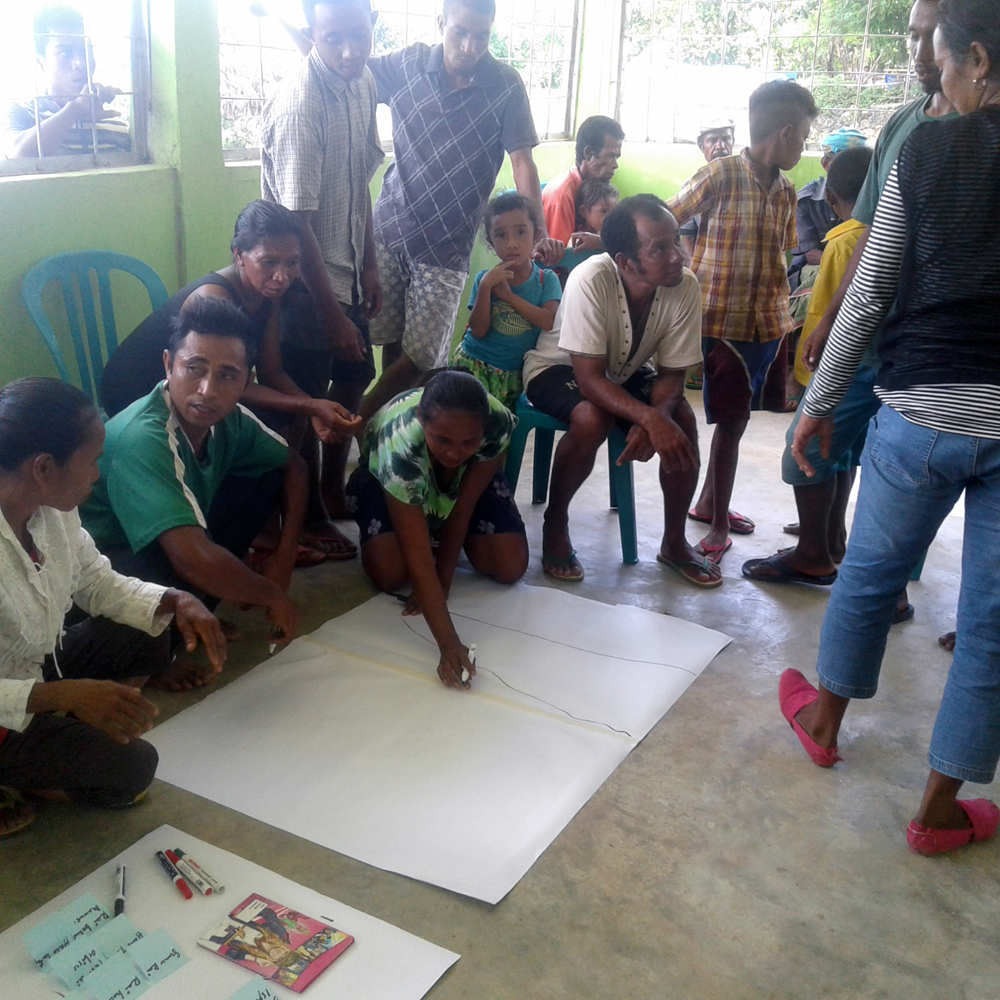Rui’s community takes action to improve health and reduce disaster risks

Rui and his wife Marcelina, both 42 years old, have six children, two boys and four girls, and live in Tatelori, Bobonaro. Tatelori is located in a remote area and due to poor road conditions, there is no access for transportation. Moreover, it only has a primary school and there are no health services available. Hence, the community used to walk an hour to access the Integrated Community Health Service (SISCA).
In January 2018, many children in Rui’s sub-village, including his daughter, Angelita, five years old, suffered from diarrhoea. He took Angelita to the Maliana Community Health Centre, walking around two hours to get treatment.
"The problem of diarrhoea often occurs in the rainy season because our water springs are unprotected and all the animals come to drink water in the same trough. Children were easily infected because they drank water that was contaminated with bacteria," Rui said.
Rui and his community’s drought concerns
On February 21, 2018, during the Community Vulnerable and Capacity Assessment (COVACA) meeting in Tatelori, facilitated by World Vision, Rui and other community members expressed their concerns about drought in the upcoming months, as they would have difficulty accessing clean water during the prolonged dry season. They were also concerned that a lack of water would affect crop growth and lead to food shortages.
During the meeting, the community members also identified seven disasters that have happened in their sub-village, including flooding, high wind, failed crops, house burning, landslides, drought, and locust attacks.
Rui and community members discussed how they respond to the drought using COVACA tools. Photo: João Pereira/World Vision
Rui and his community find solutions
In the meeting, Rui and the other 40 participants discussed how they would respond to the drought, using COVACA tools which prioritise mitigation and resilience by analysing causes, impacts and solutions.
“Eventually, we came up with our action plan that can help to protect our water resources by planting tree seedlings, which can reserve water as well as protect against landslides,” Rui said.
As a result, during May and June, Rui and other communities planted 75 tree seedlings (Bagus, kiar and Boro) around three different water sources. World Vision also helped them to construct fences and distribute drip irrigation materials. These will help the communities to conserve and store water and better manage water for vegetable production in the dry season.
People are setting up irrigation materials. It will help the communities to better manage water for vegetable production in the dry season. Photo: João Pereira/World Vision
“From now on, my children can access safe drinking water and reduce the risk of diarrhoea. I will plant more trees in order to protect water resources and reduce the damage caused by drought and landslides,” said Rui.
Rui’s daughter, Angelita said, "I am now very happy because my father has improved the water source and fenced it. I will bathe every day, and have good health. I want to be a teacher one day. "
Disaster READY is a component of the Australian Humanitarian Partnerships (AHP) Program funded by the Australian Government and implemented by Australian NGOs and their local partners, including World Vision Timor-Leste.
Share

